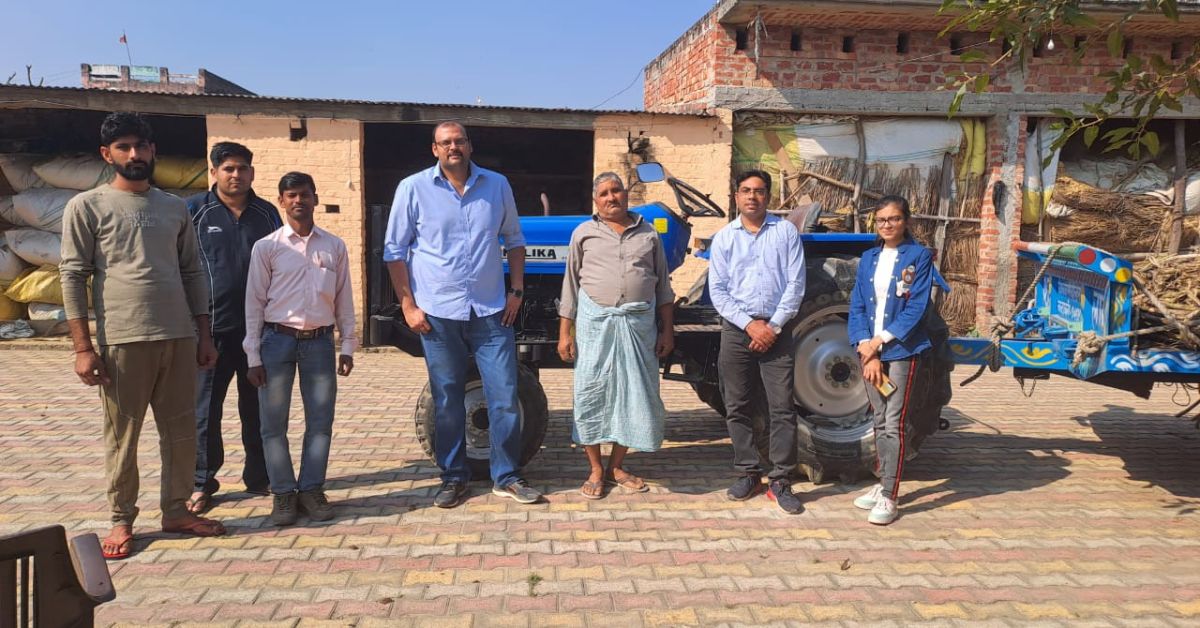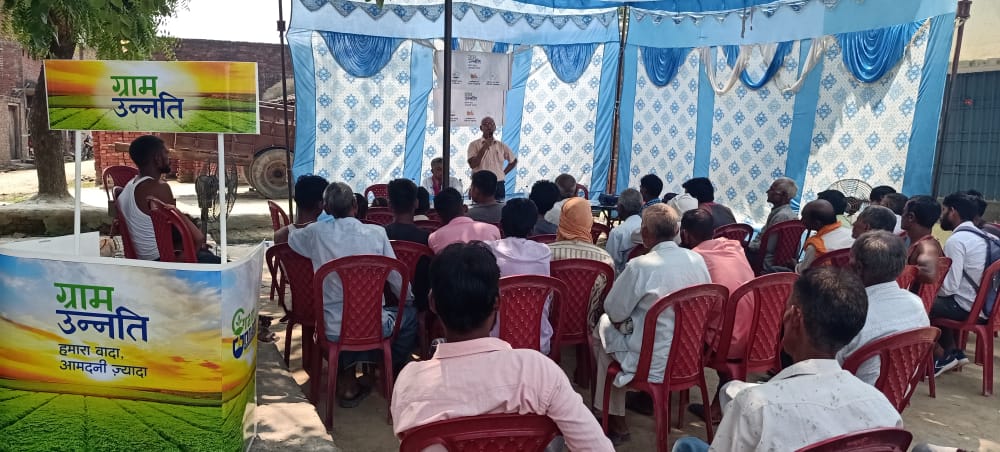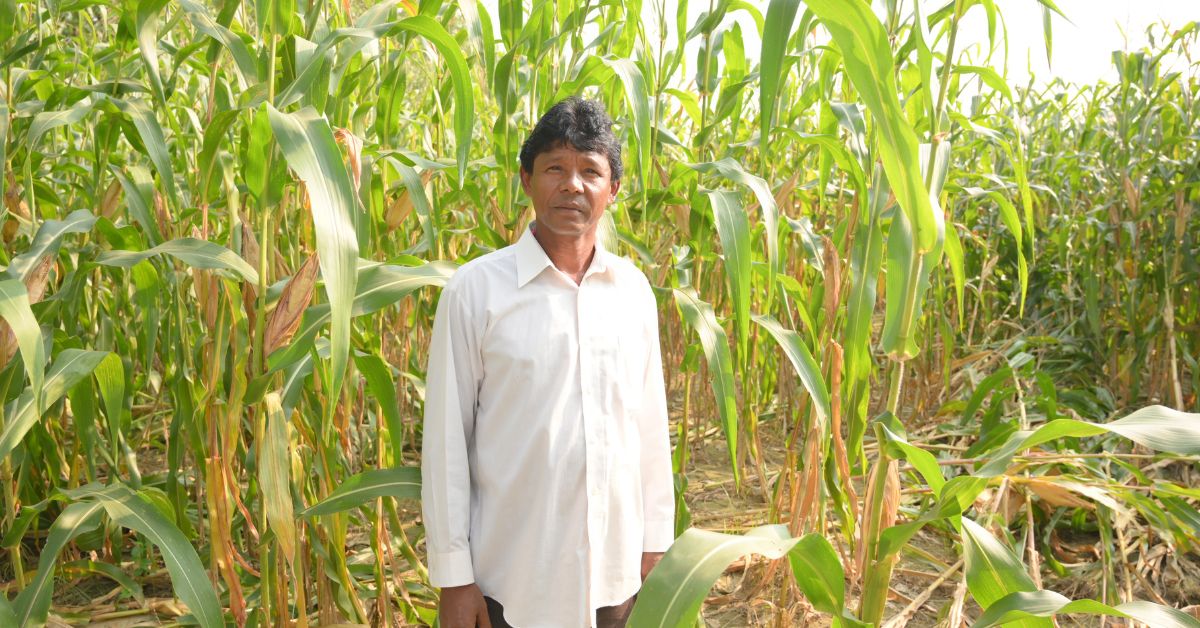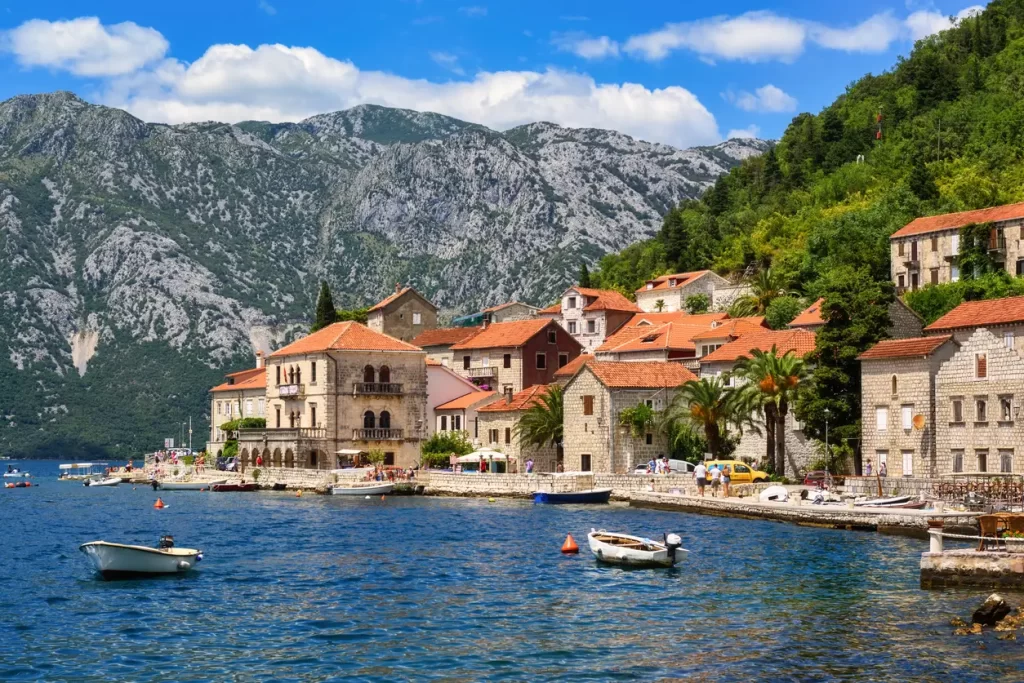Gurugram-based Aneesh Jain quit his consulting job to become a ‘consultant’ for farmers. His startup, Gram Unnati, is an agricultural value chain services platform that bridges gaps between institutional buyers and marginal farmers.
The real learning happens away from the confines of boardrooms and air-conditioned offices.
Don’t believe me? Ask Aneesh Jain, the founder & CEO of Gram Unnati.
Life was good for the IIT-Kharagpur engineer who was working as a consultant at Mckinsey & Company. However, Aneesh wasn’t too happy and wanted to get his hands dirty (quite literally) by understanding the problems of people on the ground.
Hardly 25 then, with a high risk-taking ability, he quit his career and worked in a project funded by the Gates Foundation in the agricultural fields of Rajasthan.
The harsh realities that a small, marginal farmer goes through changed the engineer’s entire world view. His firsthand experiences of the challenges plaguing the agricultural supply chain and the struggles of farmers vis-a-vis low yields, high costs and poor returns gave the now 40-year-old a new purpose in life.
This assignment wasn’t just another job; it became a defining chapter of Aneesh’s life, educating him on the nuances of agriculture and the significant potential for improvement in agricultural practices.
“I had earlier planned to go back to my corporate career but my interactions with farmers changed my best laid plans. As an individual and professional, I felt welcomed by them. They were interested in working with me, and I therefore decided to explore this opportunity and find a solution to their woes,” Aneesh shares with The Better India.

In 2013, he started Gram Unnati, an agricultural value chain services platform bridging major gaps between institutional buyers and marginal farmers. In the past decade, the company has worked with over two lakh farmers across seven states, providing better quality produce to buyers and increasing the incomes of farmers. The venture earned a turnover of Rs 50 crore in the last financial year.
Getting farmers the right value
His one-and-a-half year-long stint with the soybean farmers in Rajasthan opened his eyes to their myriad problems. It also enabled him to come up with the most pressing problem that he intended to solve –
“Every industry knows where they are sourcing their raw materials or parts from. They can trace back the origin in case of any issues. This is not possible in case of an agricultural supply chain,” he explains.
“Almost every stakeholder in this value chain, from the processor to the financial institutions to the policy makers, have this problem. Since they don’t know where it’s coming from, it’s difficult to create a system,” adds Aneesh.

Armed with the problem statement, he spent the next two years understanding the agricultural market, credits and policies. With a mission to connect farmers with the large institutional buyers, he started Gram Unnati in 2013.
The basic idea is to help create a system where the producer, i.e. the farmer, knows what the customer wants and grows according to the specifications.
“We first understand what the demand is, where it is coming from, and then work with the farmers to help them produce accordingly. The next step is to ensure that they use the best seeds, build the supply chains around them to ensure that they receive a fair price for their produce,” he adds.
Gram Unnati started working with soybean and mustard farmers in Rajasthan.
Anand Singh, a farmer from Jawasa in Madhya Pradesh, shares that the growth of his crops has increased and crop infections have reduced, leading to an increase in income since his association with Gram Unnati.
“I have been associated with them for two years. A Gram Unnati employee visits my field twice every week to check on the crops. They provide better quality seeds, fertilisers and solutions for most of our problems. They also buy all of our produce at a competitive rate,” he says.
How it works
Aneesh explains that their 100-member team first zeroes in on a new location where they wish to work in. A few members of the team then spend around 3-6 months on the ground to understand the farmers’ pain point and build a rapport with them.

Once the farmers are identified, Gram Unnati designs a cropping profile and starts running experiments on small portions of their land by adopting a few changes.
Aneesh clarifies that they assure farmers 100 percent buyback where they ask them to either grow a new crop or grow it in a slightly different manner. Their aim is to improve the quality of the produce, thereby resulting in an increase in productivity and price, states Aneesh.
“We work like consultants. We guide them through the production phase, helping them with the best seeds, best time to sow and more. After this, we take care of the aggregation by working with local infrastructure providers to ensure that the farmers sell their produce at a single point. We also take care of the payment systems by making optimal use of financial instruments,” adds the founder.
Gram Unnati works in two ways —first, they make slight tweaks in the existing crop by changing the variety, sowing or harvesting windows. In the second case, they introduce farmers to new crops which might be suitable for that climate zone.
Since climate change is a big problem faced by farmers today, the second option is rapidly gaining importance.
“In the case of pulses and cereals, we create an increased income of 8-10 percent for the farmer. In the case of fresh produce, it goes up to 40 percent. In both cases, we ensure market access,” shares Aneesh.
By ensuring access to organised supply chains, farmers get fair prices as well as security that their produce will be sold.
Gram Unnati is working in eight states across 18-20 different commodities like cereals, oilseeds, pulses, spices, fresh fruits and vegetables. Their target is to reach a million farmers in the next two years.
Edited by Padmashree Pande; Images Courtesy Gram Unnati
Source link




